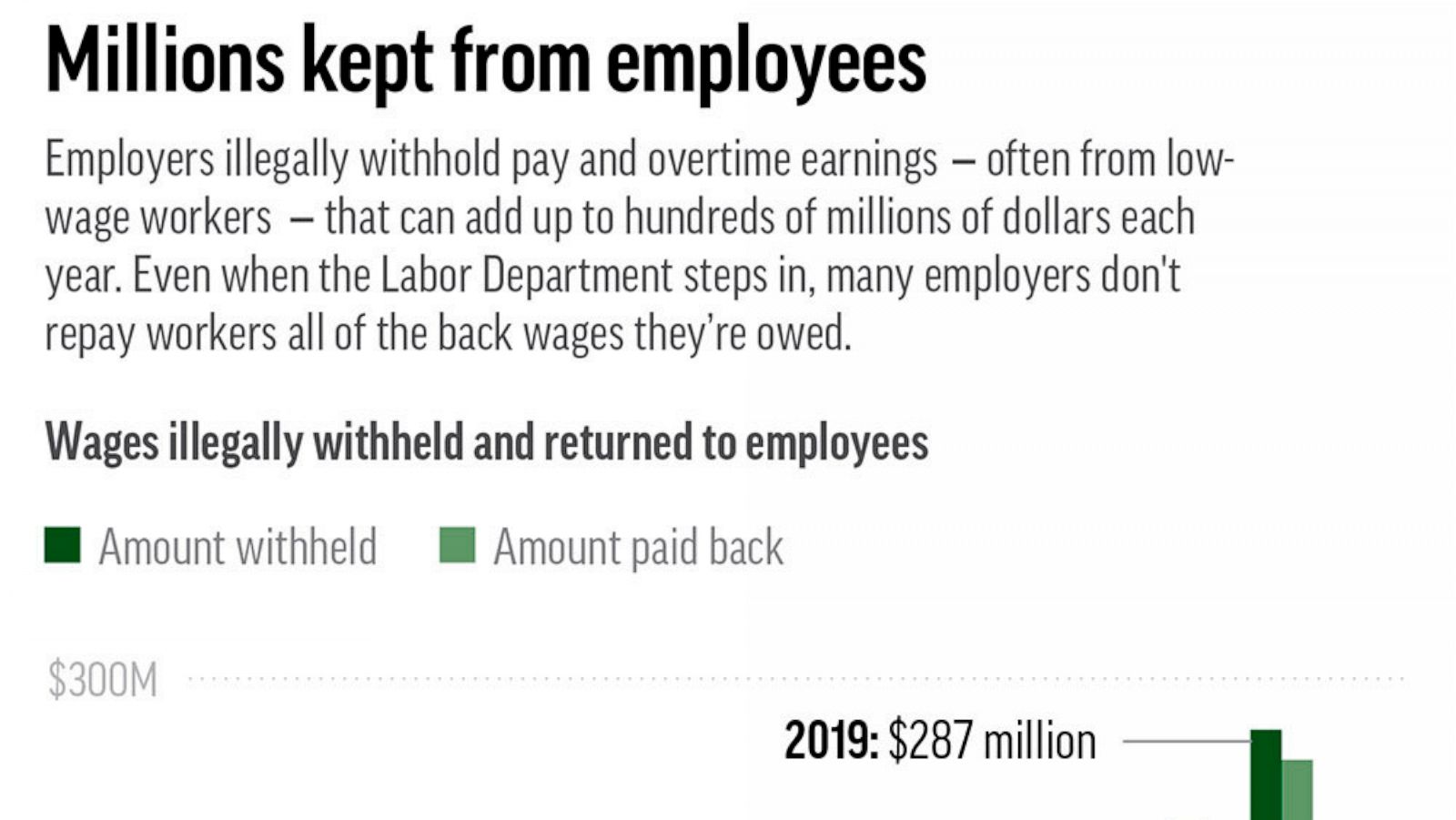Topic: How companies rip off poor employees - and get away with it

Already battered by long shifts and high infection rates, essential workers struggling through the pandemic face another hazard of hard times: employers who steal their wages.
When a recession hits, U.S. companies are more likely to stiff their lowest-wage workers, research shows. Some businesses pay less than สล็อตxo the minimum wage, make employees work off the clock, or refuse to pay overtime rates. In the most egregious cases, bosses don attend pay their employees at all.
Companies that hire child care workers, gas station clerks, restaurant servers and security guards are among the businesses most likely to get caught cheating their employees, according to a Center for Public Integrity analysis of minimum wage and overtime violations from the U.S. Department of Labor. In 2019 alone, the agency cited about 8,500 employers for taking about $ 287 million from workers.
Some major U.S. corporations were among the worst offenders. They include Halliburton, G4S Wackenhut and Circle-K stores, which agency records show have collectively taken more than $ 22 million from their employees since 2005.
The Center for Public Integrity, a nonprofit investigative newsroom based in Washington, analyzed data provided by the Labor Department in response to a Freedom of Information Act request. The data used in the analysis covers the period from October 2005 through September 2020 and includes all cases in which the agency determined there were minimum wage or overtime violations.
Most businesses contacted about this story declined to comment and several business and industry groups contacted by Public Integrity did not immediately respond to requests for comment.
Victims of wage theft toil on the lower rungs of the workforce. People like Danielle Wynne, a $ 10-an-hour convenience store clerk in Florida who said her boss ordered her to work off the clock, and Ruth Palacios, a janitor from Mexico who earned less than the minimum wage to disinfect a New York City hospital. at the height of the pandemic.
Companies have little incentive to follow the law. The Labor Department's Wage and Hour Division, which investigates federal wage-theft complaints, rarely penalizes repeat offenders, according to a review of data from the division.
The agency fined only about 1 in 4 repeat offenders during that period. And it ordered those companies to pay workers cash damages - penalty money in addition to back wages - in 14% of those cases.